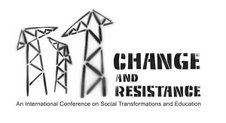Artur Lipiński,
Institute of Political Science, Kazimierz Wielki University, Bydgoszcz, Poland
The data strongly supports the existence in Poland of a profound elite cleavage based primarily on the political past and reinforced by corresponding links to organized religion. This cleavage concerns not only political elites but also the whole society. Anticommunism as the effect of the discursive construction of the enemy, was (and in fact, although slightly less salient, still is) an important topic in each electoral campaign, it played a significant role as a determining factor in coalition making processes, it influenced the activities of right-wing politicians and hence contributed to the unity of left-wing politicians who perceived anticommunism as a threat to their political position. The main idea is that conflicts over anticommunism were a crucial factor in the political conflicts during the years after the collapse of the communist regime in Poland.
My paper is going to be devoted to the one of the most significant conflicts permeating Polish society and dividing it in respect of attitude towards the non-democratic, communist regime. This division has shaped a public discourse, the construction of political and party system, and trajectory of most of the conflicts which ignited political struggles.
Anticommunism in contemporary Poland serves as a tool of depreciation of political opponents from the left wing. It is an exclusionary discourse which makes it possible to create or revive the division between "we" and "they" (the term “anticommunism” as such implies this division) and sustain the antagonism. If we accept the thesis that political discourse has three functions: creation of a positive image of oneself, creation of a negative image of the opponent and mobilization of support, we will see the cause of the political strength of anticommunism.
In the paper I’m going to study the content of anticommunism which is perceived as the outcome of intellectual, doctrinal, programmatic or broadly speaking discoursive activity of political subjects: parties, groupings and candidates. I assume that they are important actors pretending to control public discourse, to impose particular definition of reality and evaluation of status quo, to sustain, intensify and modify conflicts which have already existed within society. From this point of view, the presence, significance and character of anticommunism in the society is mainly the effect of discursive activities of political objects.
I also take premise that anticommunism should not be regarded as a cohesive, fixed phenomenon similar to a political doctrine, but rather as a loose set of ideas, which are rooted in the generalized rejection of communism. I’m going to analyze internal diversity of anticommunism which, on the most general level, manifests itself through four dimensions. I’ve distinguished: temporal orientation, emotional register, object of discourse and ontological dimension. A four dimensional discourse analytical matrix helps me to show that anticommunism not only tended to delegitimize left wing, but also served as an instrument of internal struggle among right wing agents.
Subscribe to:
Post Comments (Atom)

No comments:
Post a Comment